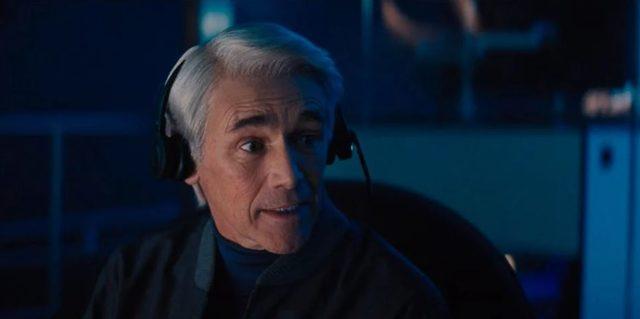Yesterday I wrote a review of Don’t Look Up and said of all the dysfunctional people in it, the most dysfunctional, the most lost of all, was the tech billionaire, Peter Isherwell. He was the perfect blend of the real-life tech giants we know so well, Bezos, Musk, Gates. Like those in real life, all of those within the establishment elite deferred to Ishenwell’s vision unquestioningly, as though they were in the presence of royalty or even divinity.
A movie, book, piece of music, is instantly worthy of being included in public conversation if it creates a new meme or an archetype which proves useful and enduring. Such is the case, I believe, with Peter Isherwell. He is the synthesized embodiment of the on-the-spectrum plutocrat who owns everything, understands nothing outside of how to create a monopoly, and is worshipped by the entire establishment.
It is to Peter Isherwell that all who are incapable of looking beyond the immediate paradigm blindly look to to lead us into the future. In his hands do we place our freewill and better judgment in exchange for some mystical belief that the future is an unavoidable fact that requires oracles such as Isherwell to explain to the rest of us.
I was thinking of this today as I came across a tweet from Bill Gates.
There are some people who reveal a glint of genius in everything they say or write. There are some, like Albert Einstein, capable of speaking intelligently and insightfully on a far-ranging array of subjects. There are some people whose genius will reach beyond their lifespan and be appreciated for generations to come.
Bill Gates is not one of those people.
Granted, there are vast areas of knowledge of which I know little or nothing. Bill Gates’ genius might very well be capable of being appreciated only by those with advanced knowledge of computers and coding. I will let others speak on that subject, as is only fitting. What I do know is that I have never come across anything that Bill Gates has said or written that has given any hint of an impressive intelligence.
I scoped him out today on Twitter. One who is of my generation often forgets that in this day and age our elites have such a need for adoration from the masses that they feel compelled to be on social media. I read a few of his tweets. They are trite, uninspiring, and lack any purpose for being. They do nothing to add to public discourse. I do believe Bill Gates would rather stand on a street corner naked than expose the inner workings of his mind. And God forbid, he would never say anything that would threaten existing power systems in any way.
The list of people Gates follows is further revealing of his intellectual vapidness. He follows people with power, sure, but I don’t find a single brilliant person among his 300+ follows. Assuredly Gates travels in different circles than I do and might well be aware of important thinkers of which I am ignorant, but I can’t help thinking there should be at least SOME overlap. Even if it is a pop-culture celebrity with a certain insight, I’d expect him to follow SOMEONE I know and respect.
Instead he follows Trevor Noah.
Of all the comedians to choose from, why follow someone guaranteed never to think outside the box or challenge establishment patterns in any way? The most obvious answer to this, and I’m not saying it’s the only answer, is that you yourself have a very mediocre and establishment brain.
Jack London said it best through a character in his novel, The Iron Heel: “But, outside the realm of business, these men are stupid. They know only business. They do not know mankind nor society, and yet they set themselves up as arbiters of the fates of the hungry millions and all the other millions thrown in. History, some day, will have an excruciating laugh at their expense.”
London wrote these words over a century ago. I’m unsure whether this is a problem that has existed throughout history, but I have the sense that it has grown particularly acute in our age. And while London predicted history will have an excruciating laugh at their expense, there is no guarantee we will have a future capable of looking back on our era. We are a species facing unprecedented challenges, and we are allowing ourselves to be led by people who are ignorant of matters outside of building colossal financial empires for themselves.
People like Musk, Gates, and others tell us what books we should read, what our future is supposed to look like, how to solve hunger and disease, and the way to human happiness. They continue to increase their own wealth while the solutions they preach do nothing to prevent the catastrophes that are approaching.
They are remaking the world in their own image, and it is seldom that anyone with any access to a large audience is willing to call them out on it. Kudos to those who worked to bring Don’t Look Up to the screen.
Perhaps it is foolish to believe the establishment is going to bring about the change we need, but we shouldn’t turn up our noses when some of them are willing to sell us the rope we can use (metaphorically, of course) to set things right. Don’t Look Up deserves to be a subject of conversation we can all engage in. Kindly leave your ego at home.
If you liked what I write enough to support me, you can buy me a coffee. If you liked it but don't have a credit card handy, please share. Also, follow me on Twitter or Facebook, sign up for my newsletter, or check me out on Amazon.




